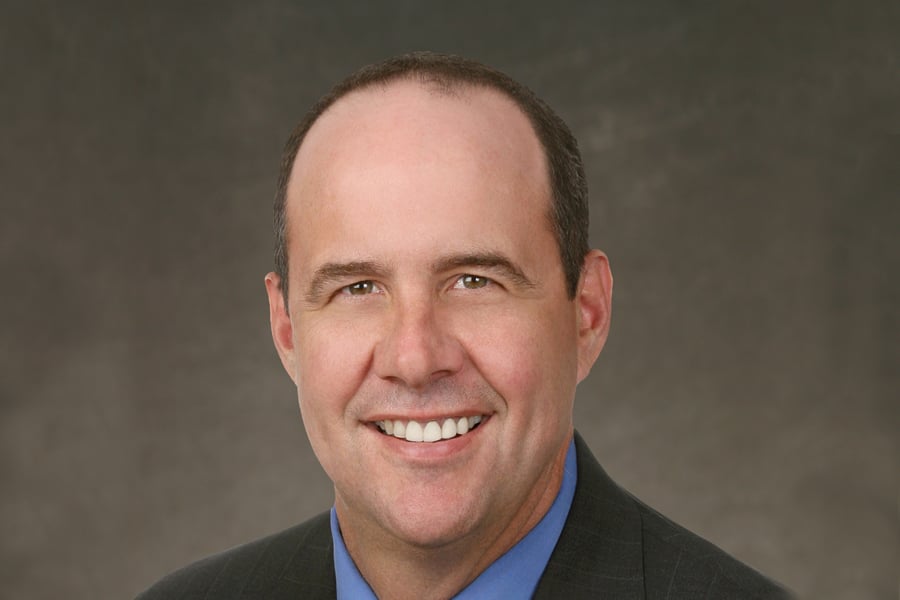Finra pursued broad, sweeping cases and also ramped up its crackdown on smaller violations during the six-year tenure of J. Bradley Bennett as the organization's chief of enforcement.
The Financial Industry Regulatory Authority Inc., the broker-dealer self-regulator
announced on Thursday that Mr. Bennett, 54, will step down early next year.
Finra has named Susan Schroeder, deputy head of enforcement, as acting chief while it conducts a search for Mr. Bennett's replacement.
Mr. Bennett will leave behind a unit that acts more like the enforcement arm of the Securities and Exchange Commission, which oversees Finra, according to a former Finra official.
“He brought cases within Finra's expertise and responsibility but on a scale of size, sanction and sophistication that can compete with the federal regulators, such as the SEC,” said Dan Nathan, a partner at Morvillo LLC and Finra director of regional enforcement from 2006-11.
Mr. Bennett has led the 300-member Finra enforcement staff since January 2011. Last year, Finra
levied $191.7 million in fines and restitution.
This year it is on pace for a record level of fines, according to a
Sutherland Asbill & Brennan study. One of the most significant 2016 actions was a $25 million settlement with MetLife over variable annuity sales, the stiffest Finra sanction ever in that area.
Under Mr. Bennett's direction, the number of enforcement cases and industry bars has increased by 20% each while financial sanctions have jumped between 400% and 600%.
He said he takes pride in “truly transforming [Finra] into a firm and fair regulator that's on par with the other financial regulators. The enforcement department was a significant contributor to the success of Finra over the last six years.”
Among his top target areas have been annuities, L-shares, anti-money laundering, microcaps, and high-risk firms and brokers.
“They've brought a lot of high-profile cases and large dollar settlements,” said Todd Cipperman, principal at Cipperman Compliance Services. “It's come a long way from the old days when [Finra's predecessor] the NASD was a membership organization. They're trying to show they can be an effective regulator, even as an SRO.”
A former Finra official said that Mr. Bennett has increased enforcement emphasis in areas such as unregistered securities and anti-money laundering.
(Related read: Advisers want Finra to focus on the 'bad guys' and leave the rest alone)
“He is very intelligent and passionate about the program,” said Linda Riefberg, special counsel at Cozen O'Connor who spent 17 years at Finra, ending her tenure as chief enforcement counsel. “He believed in trying to elevate certain violations to a more serious level.”
But he also focused on areas, such as outside business activities by brokers and selling away, that only tangentially affected brokerage clients, she said.
“He spent a lot of resources and time on cases that didn't involve customer protection issues,” Ms. Riefberg said.
Under Mr. Bennett, Finra also has zeroed in on technical violations, such as filing problems, according to Carrie Wisniewski, president of B/D Compliance Associates Inc.
“Overall, enforcement was much more aggressive on smaller issues that normally wouldn't generate fines,” Ms. Wisniewski said. “Now, they do. There's more pressure on small firms to make sure every 'i' is dotted and 't' is crossed.”
Mr. Bennett's departure is the first major staff change at Finra since Robert Cook took over as president and chief executive in August. Mr. Bennett
earned $1.06 million in total compensation in 2015.
“Brad has guided our enforcement team in collaborating with other Finra staff on a number of important investor protection initiatives, such as the high-risk broker program and the senior helpline,” Mr. Cook said in a statement.
His efforts — sometimes described as heavy-handed — have tended to rub nerves raw in the financial industry, according to sources who did not want to be identified.
Mr. Bennett let's such criticism roll off his back, saying that Finra acts in the best interests of investors and the markets.
“Our enforcement judgment is never clouded by any relationship with industry,” Mr. Bennett said.
Mr. Bennett, who will leave Finra in early February, does not yet have a job lined up because he didn't want to search for a new position while conducting enforcement actions.
He left, he said, because “we have a great leadership team in place and it's time for them to take over and move the program to the next level.”
Finra may bare more teeth under Mr. Bennett's successor, as the SEC also undergoes a leadership change in the Trump administration, according to Mr. Cipperman.
“You're going to see a very active Finra and state securities regulators if the SEC leaves the field open,” Mr. Cipperman said. “I would expect Finra to be very aggressive on the retail front, especially with brokers and advisers who are dually registered.”







